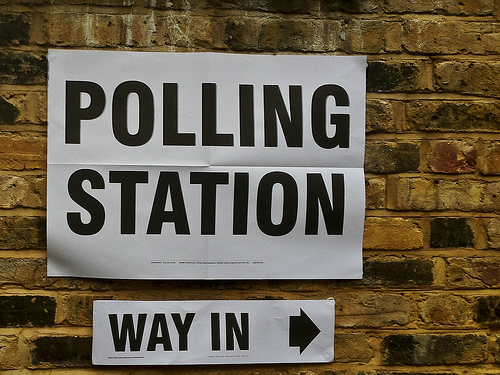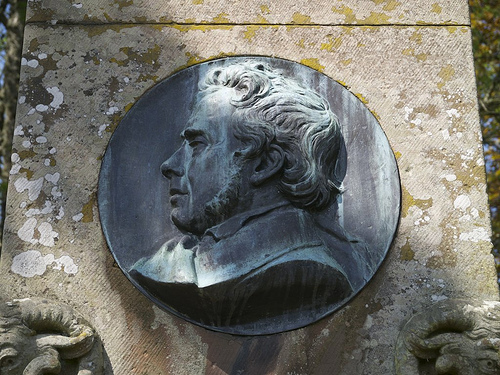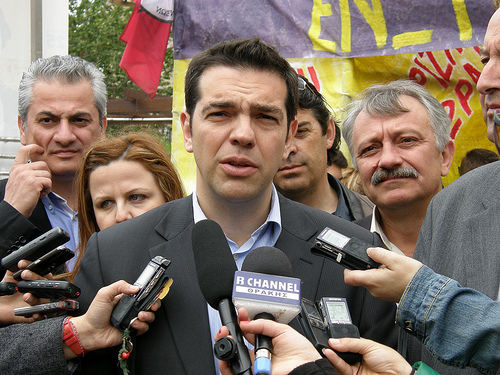Murray Smith on the results of the French elections

Following on the victory of Socialist Party candidate Francois Hollande in the May 6 French presidential election, legislative elections were held in two rounds on June 10 and 17. The results confirmed those of the presidential election, but with some particular features.
Only since 2002 have the presidential and legislative terms been harmonised. Previously the decision to hold legislative elections or not was the choice of an incoming president. Now it is automatic. This sequence tends to produce elections that are simply a prolongation of the presidential contest, leading to a marked bipolarisation. On one side there is a strong push to give the incoming president a majority. On the other side of the political spectrum there is a tendency to vote for the main opposition party to provide a counterweight. Other parties tend to be squeezed out in the process.
And that is what happened this time. Despite polls indicating that there would not be a big wave of support for the Socialist Party, there was. Not on the scale of the landslide that followed Francois Mitterrand’s victory in 1981, but substantial. The Socialist Party won a majority on its own, reinforced by a couple of small parties of fellow travelers and further amplified by its Green allies.
First round
Let us look at the first round of the legislative elections compared to the first round of the presidential election. First, the rate of abstention was much higher, as it now is for every election except the presidential; more than 42 per cent in the first round and more than 44 in the second (comparable figures for the two rounds presidential election were 18-20 per cent). So naturally, with one notable exception, every party’s support dropped in absolute terms, but not necessarily in percentage terms. The Socialist Party vote, at 7.6 million, was about three quarters of its vote on April 22. The conservative UMP vote was 7 million, compared to 9.75 million. In percentage terms the Socialist Party won 28.63% in the presidential election, 29.35% at the legislative elections. The percentages for the UMP were 27.18 and 27.12.
Things fared differently for the other parties. The far-right National Front vote fell from 6.4 million to 3.5 million, and from 17.9 per cent to 13.6. The Front de Gauche (Left Front) went from just under 4 million to 1.8 million and from 11.1 per cent to 6.9. Only 44 per cent of those who voted for the Left Front presidential candidate Jean-Luc Melenchon on April 22 voted for the Left Front on June 10 (also, 5 per cent of Hollande’s voters did so).
As for the centre candidate, Francois Bayrou, who won more than 3 million votes at the presidential elections, his party, the MoDem, got less than half a million votes, and Bayrou himself lost his seat, a victim, according to his own admission, of his electorate not having followed him in his choice of voting for Hollande in the second round of the presidential election.
Greens
The exception was the Green party, EELV, but it is one of those exceptions that proves the rule. Its presidential candidate got a modest 2.95 per cent, 828,000 votes. But in the first round of the legislative election EELV won 1.4 million votes, 5.46 per cent. “Won” is perhaps the wrong word: “received” would be more appropriate. EELV got those votes and obtained 17 seats (as against four previously) because in 61 seats, as part of a political pact, the Socialist Party did not present a candidate. So EELV’s progress did not go against the grain of bipolarisation but was part of it: Greens were elected with Socialist votes, something which is very obvious when you see that EELV averaged got just 3.9 per cent in the seats where it was confronted with a Socialist candidate.
Left Front
The Left Front did not make any such deals with the Socialist Party. Negotiations to have a common candidate of the left in a few constituencies where the National Front posed a threat fell through because the Socialist Party did not want to stand down for Left Front candidates. So the traditional rule applied: if the Socialist Party got more votes than the Left Front in the first round, the Left Front candidate withdrew before the second round, and vice versa.
Unfortunately, the vice versa was not very widespread. Left Front candidates came first in 11 constituencies, and were beaten by the Socialist Party elsewhere and stood down. In the Saint Denis constituency, the long-standing MP refused to accept this rule, stood against the Socialist Party in the second round and lost. After the second round the Left Front had 10 MPs, as against 19 before the elections.
This was clearly not a good result, but it was not as bad as one might think by just looking at the seats lost. The only comparison is with the results of the Communist Party in the 2007 elections (before the Left Front was formed). That shows a gain of around 600,000 votes, which is not so bad. But the result came as a shock to the Left Front. It had been widely expected that, on the strength of the result of the presidential election, not only would it keep its seats but win more. The figure of 30 seats was considered a reasonable objective.
So what happened? In the first place there was what might be called the objective factor of bipolarisation. There was a strong drive by left voters to give Hollande a good working majority. Whereas, at the on April 22 first round of the presidential election 30 per cent of Hollande’s voters are estimated to have hesitated between him and Melenchon, 38 per cent of Melenchon’s voters voted Socialist Party on June 10. However, there were also weaknesses on the part of the Left Front.
In the presidential campaign, which was a national campaign par excellence, the difference in program between the Left Front and the Socialist Party was very clear. The legislative campaign was of course a national campaign, but it was also a sum of more than 500 local campaigns. And it appears that the central, national aspect was not sufficiently emphasised and that the case was not sufficiently made as to why it was necessary to have a strong group of Left Front MPs and not just a presidential majority in general.
This was particularly necessary given that the first measures of the Ayrault government (seehttp://links.org.au/node/2902) were well received on the left – 70 per cent of Left Front voters were fairly satisfied with them and 23 per cent very satisfied.
There has also been some criticism of the decision to stand Melenchon against Marine Le Pen in the North of France. In the event Melenchon came third in the first round, behind Le Pen and the Socialist Party candidate, and had to stand down. In fact he was not very far behind the Socialist, and actually ahead in the main town of the constituency. But a miss is as good as a mile. The criticism is that the ex-presidential candidate engaging in a duel with Le Pen encouraged the idea that the Left Front campaign was essentially anti-National Front, and not centred on the need for a strong force of the radical left in parliament. There is certainly something in that, but it should be emphasised that the choice was not taken by Melenchon individually, but collectively by the Left Front, after considering other options. In the second round the Socialist Party beat Le Pen by a handful of votes.
Distorted result
It should also be underlined that the electoral system, one of the most undemocratic in western Europe, completely distorts the relationship between votes and seats. With proportional representation the Communist Party (PCF) would have had 25 seats in 2007 and the Left Front 40 seats in 2012. Today the Socialist Party would have less than a third of the seats in parliament, as against more than half.
When we look at the Left Front results in terms of votes the picture looks brighter. Compared to the PCF in 2007, the Left Front progressed in 90 per cent of the constituencies in metropolitan France. In 330 it scored more than 5 per cent (135 in 2007). In 69 constituencies the score of the Left Front was between 10 and 20 per cent (37 in 2007). In 26 out of the 95 departments in metropolitan France its score in 2012 was more than double that in 2007 and in eight it more than tripled. However, at the top end of the scale the number of constituencies where the score was over 20 per cent fell slightly from 23 to 20, thus not reversing a long-term trend.
As the historian Roger Martelli put it in an analysis of the first round, the foundations are becoming stronger, but the roof is fragile. You don’t need to be an architect to know that that’s better than the other way round (which was the tendency before). But that’s a long-term view and in the short term seats were lost. However, they were mostly narrowly lost — less than 5000 votes, distributed in the right places, would have secured six more MPs, mostly the sitting ones who were defeated despite their vote rising by between 2 and 4 per cent compared to 2007 – but the Socialist Party vote increased more.
Setback for right
The elections were a severe setback for the UMP, which lost 3 million votes and 119 seats compared to 2007, whereas the Socialist Party gained 1.2 million votes and 94 seats. The result has accentuated the crisis of orientation within the UMP, with some candidates, including prominent ones, openly courting the National Front, not usually successfully in terms of getting elected this time round. The (strong) current within the UMP that is closest to the ideas of the far right, the Popular Right, fared worse than the UMP as a whole, losing half its MPs.
The National Front made its entry into parliament for the first time since 1997. The defeat of Marine le Pen was a setback, but two MPs were elected, both in the south: Le Pen’s 22-year-old niece, Marion Marechal-Le Pen, and the lawyer Gilbert Collard, who is not a National Front member but part of Marine Le Pen’s “opening out” strategy and who may turn out to be a loose cannon. In the Provence-Cote d’Azur region, the Socialist Party president of the region won a narrow victory over the National Front candidate for whom the UMP candidate had stood aside. In spite of its overall drop in votes compared to the presidential election, in 33 constituencies the FN vote in the legislatives was higher.
Communist Party (PCF)
The biggest non-surprise in the aftermath of the second round was the decision of the PCF not to take part in the Socialist Party-led government. Whereas the other components of the Left Front had made it clear during the campaign that they would not go into government with the Socialist Party, the PCF had always said that it would take its decision after the second round. However it was pretty clear what the decision would be, for anyone listening to what PCF leaders were saying during the campaign. The Socialist Party was not going to modify its program to accommodate the Left Front, and the PCF was not going to go into government to apply the program of the Socialist Party. The only thing worth noting was the scale of the refusal.
At a PCF’s National Council meeting on June 18, a three-point resolution was adopted. The first point stressed the importance of taking political initiatives and mobilising to impose radical policies. Second, it was decided that the conditions did not exist for the PCF to take part in the government, though leaving open the possibility that these conditions could change in the future. Third, the continuation and reinforcement of the strategy of the Left Front was reaffirmed. The resolution was adopted by 93 for, 11 against and 17 abstentions. A consultative vote of party members in their branches on June 18-19 produced a majority of 93.44 per cent. The final decision was taken by 500 delegates at a national conference on June 20, with four against and 16 abstentions.
What course for Hollande?
The question that is posed now is what course will Francois Hollande and his government pursue? For the moment the answer is not absolutely clear. Of course Hollande will not pursue an anti-capitalist policy, no one expects him to. What he will do is less clear. It is quite clear what capital, in particular finance capital in France and internationally, wants him to do. He has to impose government spending cuts, drop any ideas of taxing the rich, carry out structural reforms, in particular reforms of the labour market that reduce workers’ rights, pension reform, reduction of the public sector. In other words the program that is advocated and pushed forward in Europe by the “Troika “of the European Union, the International Monetary Fund and the European Central Bank, supported by the OECD and the whole panoply of employers’ organisations.
How is Hollande shaping up? Let us look first at the opinions of two eminent organs of finance capital, theEconomist and the Financial Times. The Financial Times says in its editorial of June 20: “The sweep of the National Assembly by Mr. Hollande’s Socialist Party should have marked an end to populist initiatives. So far it has not.” Let us note in passing the FT’s conception of democracy: get yourself elected and then forget your promises and fall into line. The editorial goes on to criticise Hollande’s idea of a (3 per cent ) tax on dividends, his failure to define spending cuts, and so on.
The Economist is much more forthright. In an editorial titled “Powerful as well as dangerous” (a reference to its April 28 front page, “The rather dangerous Monsieur Hollande”, see http://links.org.au/node/2902). The sub-heading was “Investors beware; Francois Hollande is set to take France in the wrong direction even faster than you feared”.
The editorial has a reasonably good word for Hollande’s 120 billion euro European growth pact, also backed by Italy and Spain. It might have complimented him for joining in the chorus of advice to the Greeks to vote responsibly on June 17 and his expression of satisfaction when they did. But the Economist’s preoccupations are elsewhere. The editorial states: “Mr Hollande will start by cutting the retirement age for some workers to 60, putting the top marginal income-tax rate up to 75%, raising taxes on wealth, inheritance and dividends, increasing the minimum wage and making it much harder for employers to fire workers. Far from curbing the size of the public sector, at 56% of GDP the biggest in the euro zone, he seems likely to expand it. With these policies he is acting against the grain of change in the rest of the EU. This will do nothing to improve France’s competitiveness which, as its gaping trade deficit shows, has declined fast. Nor will it make the business climate any friendlier”.
In an article in the same issue, we read: “So it has been hard to distinguish what part of his speechifying—calling ‘the world of finance’ his main enemy or the rich ‘grasping and arrogant’—has been purely electoral. Now he will be forced into real choices. For he has, in effect, campaigned with two contradictory messages: a pledge to keep to France’s commitment to bring down the budget deficit to 3% next year (and to eliminate it by 2017), and a promise to increase benefits and fight austerity in Europe.
“Pierre Moscovici, the finance minister, has insisted that France would meet its targets ‘without austerity’. The government plans some immediate fiscal changes on July 4th, a day after Jean-Marc Ayrault, the prime minister, outlines his legislative plans to parliament. They will include a vast array of tax rises—on the annual wealth tax, companies, oil firms, financial transactions and inheritance—focused on the rich and on business. There may be an extra 3% dividend tax to be paid by companies. Mr. Sarkozy’s planned VAT increase will be abolished. Further tax rises are expected in the full 2013 budget, due in September, including a new top rate of income tax of 75% on incomes over €1m.
“The government is ducking an even more crucial issue: France’s loss of competitiveness inside the euro zone. In an unusually blunt outburst this week, Laurence Parisot, head of Medef, the employers’ federation, said that she feared the ‘strangling’ of companies. Besides tax rises, there are plans to tighten redundancy rules for profitable firms and to raise the minimum wage. When David Cameron, Britain’s prime minister, said cheekily that he would ‘roll out the red carpet’ to French firms seeking to flee, the Socialists dismissed it as cross-channel rivalry. The real danger of Mr Hollande’s plans has yet to sink in”.
The Financial Times wrote on June 18: “Potential deep cuts in France’s huge public spending bill will have to be made in the 2013 budget. But the new government has avoided any detail on this highly sensitive issue until it has safely negotiated the elections. It has indicated it will resist calls from the European Commission and others for structural reforms and deregulation, preferring instead to toughen employment protection legislation.”
The Economist editorial concludes: “In the end Mr Hollande will meet reality, just as Mitterrand did. A weakened France has no alternative but to embrace structural reforms and liberalise its economy. And it will surely take less than the two years Mitterrand had before changing course. In the meantime a powerful President Hollande could wreak much damage on his country.”
The reason for such long quotes is that they sum up very well the opinion of the ruling class, in France and internationally, about the Hollande presidency. They have expressed such criticism and disquiet before during and after the electoral sequence. Theirs fears may be exaggerated: if we were to go through the measures over which they express outrage, we would find that they are in most cases not as radical as they seem to believe. However, there is a problem, which can be summed up by the Economist’s sentence, “With these policies he is acting against the grain of change in the rest of the EU”. It does seem that Hollande would prefer to reduce the deficit by taxation rather than cuts, that he is not enthusiastic about cutting the public sector, or about the much-demanded structural reforms.
The problem is that “the grain of change in the rest of the EU” is not some general tendency, it is a clear, well-defined policy imposed by European institutions, by the IMF, by Germany and its allies. If it is not frontally opposed, it will over-determine national politics. Hollande can only give himself room for manoeuvre to apply heterodox policies in France if he is prepared to take on those forces, to engage in a real battle with them. Unfortunately, that seems unlikely. But there will very soon be a test, at the EU summit on June 28-29.
Fiscal pact
In a preparatory meeting of the “big four” of the euro zone (Germany, France, Italy, Spain) on June 22 Hollande got agreement on the ”growth package” of 120 billion euros, most of it not new money. But Merkel did not budge on anything substantial. The real test will come at the summit. In fact, among Hollande’s promises there is one that could be explosive, if he keeps it – his promise to renegotiate the fiscal pact, which Merkel and her allies refuse. If France then refused to ratify it, the whole project would be holed below the water line. If Hollande dug his heels in on that and furthermore demanded serious changes in the Greek bail-out conditions, that would be a real breach in the wall of austerity. If he accepts the fiscal pact, claiming the growth package as a victory and then France ratifies it, he will have placed himself on the defensive, and he will have great difficulty maintaining any independence in terms of his policies in France.
In any case, we will soon have some indications as to where Hollande is going. First of all at the EU summit, then with the report by the Cour des Comptes on France’s public finances, then the presentations of the legislative program, then the summit between the government, the employers and the unions.
To come back to the conclusion of the Economist’s editorial, it is certain that Hollande will meet reality; indeed he is already meeting it. It is also true that he will have less time than Mitterrand. He may resist the idea that “France has no alternative but to embrace structural reforms and liberalise its economy” and fight what would probably be a rearguard action. Or he may, more or less quickly, just cave in.
Whatever course Hollande pursues, the analogy with Mitterrand has its limits. When Mitterrand did his U-turn in 1983, there was no serious challenge from the left. The Communist Party was still in the government and the reaction among those who had put the left in power in 1981 was one of disillusion and disorientation. There were some defensive battles, against the destruction of the steel industry in 1984, for example, but no coherent fightback.
Since then people have learned, for example under the Jospin government, that sometimes you have to fight back against a left government. And there is today in the Left Front a credible political force that is outside and independent of the government. It may be a case of supporting measures of the Socialist Party government that go in the right direction and trying to make further advances. Or it may be a case of opposing austerity measures and reforms that “go with the grain of change in the rest of the EU”. But the opposition will now come not on the electoral terrain but from popular mobilisations. In that context, the links that have been established or re-established in the last period between political and trade-union activists will be invaluable.
Murray Smith is a member of the anti-capitalist party Dei Lenk (The Left) in Luxembourg.
This article originally published in Links magazine and reproduced with the permission of the author.



